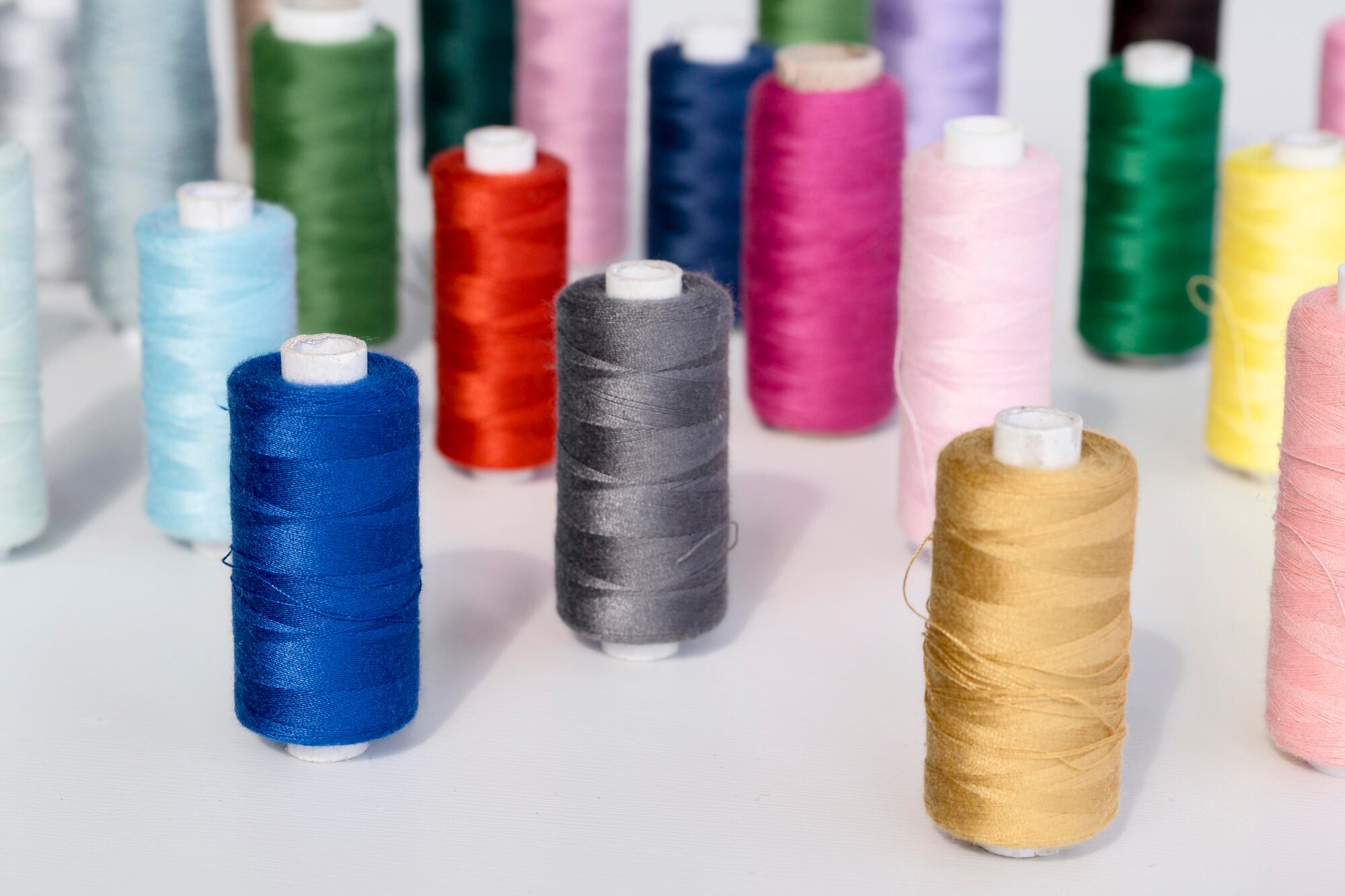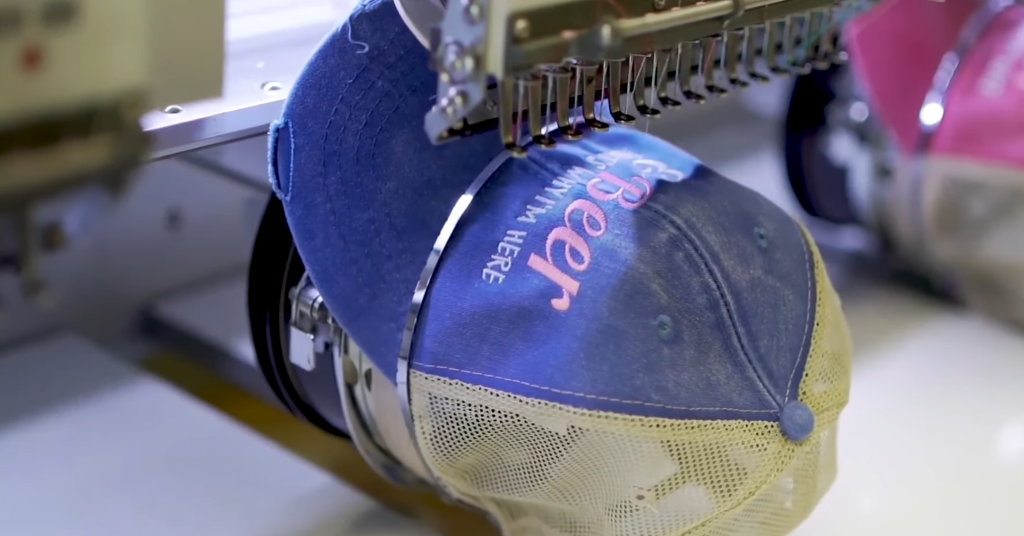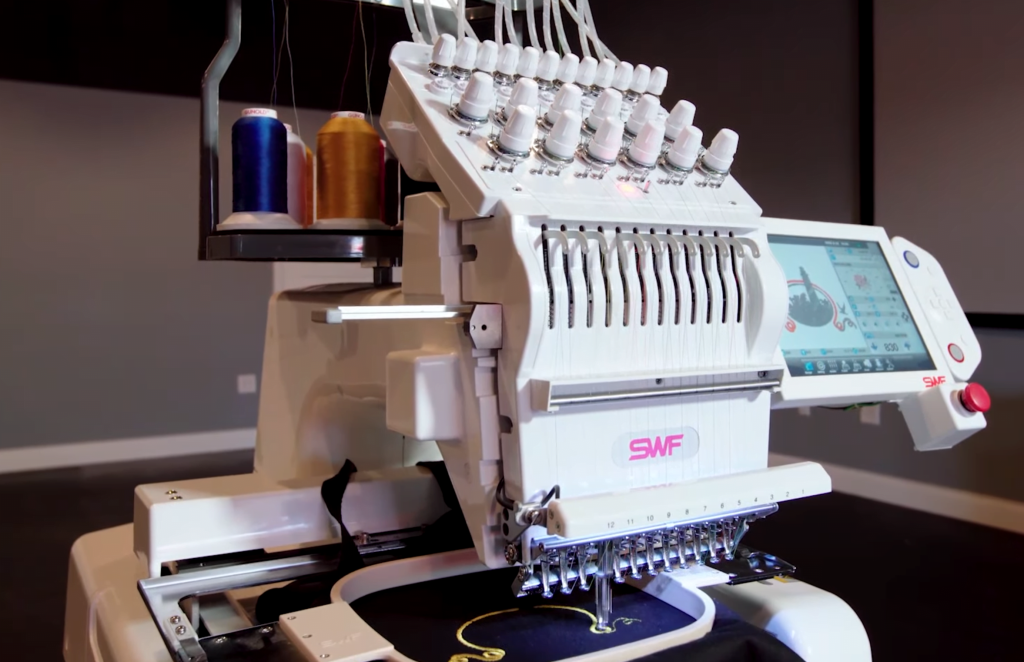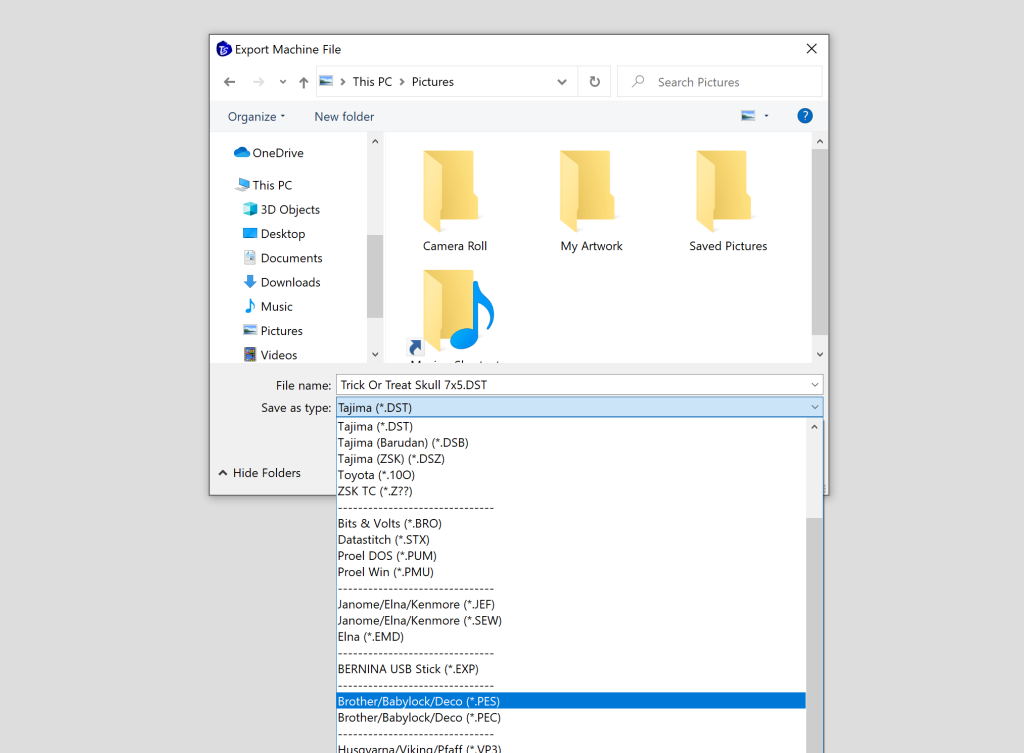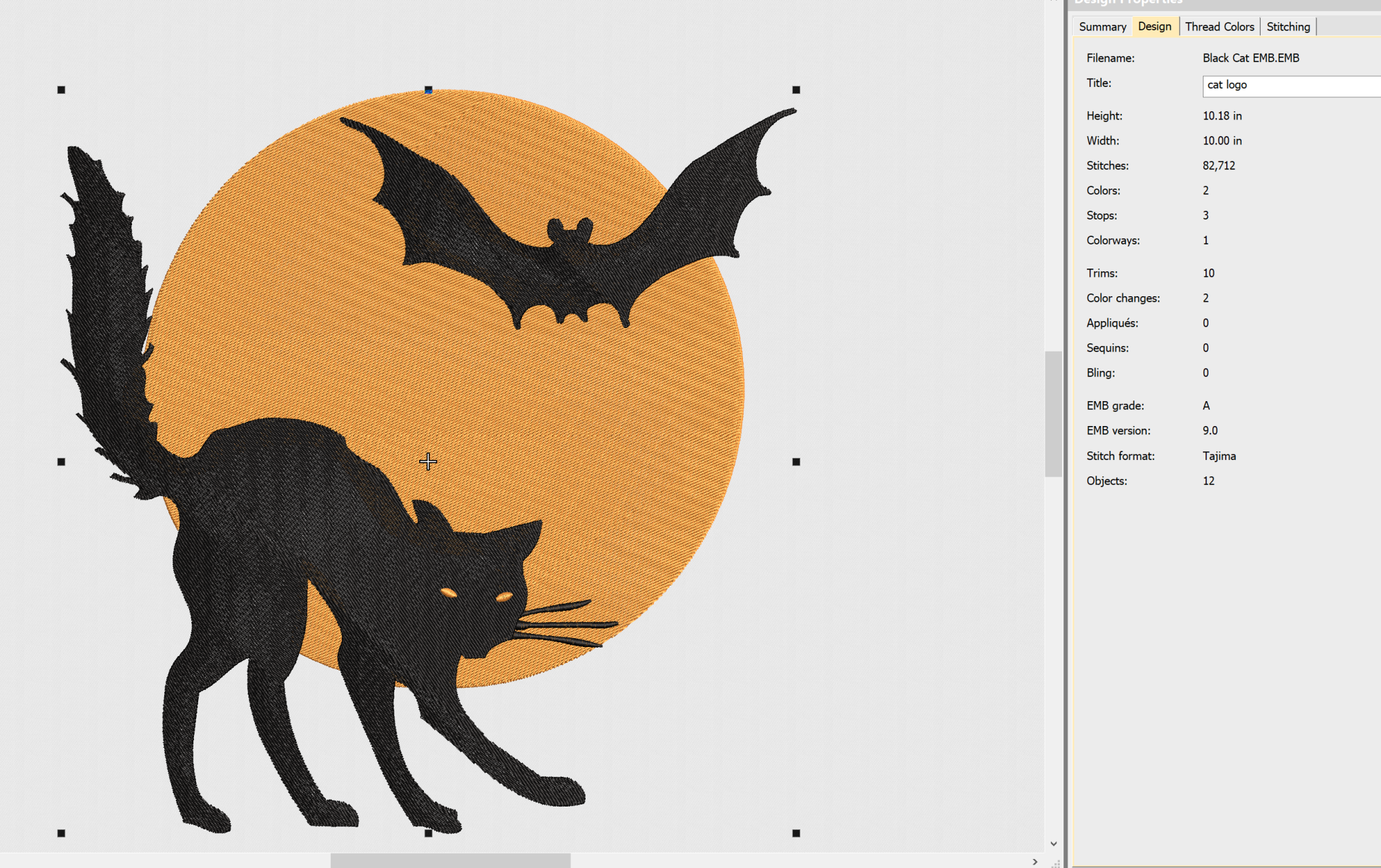Choosing the wrong thread type can doom your project to failure! But, while there are many options out there, it’s easy to learn once you know what you’re looking for! Not sure what machine embroidery thread you need for your project? Here’s what you need to know.
Machine Embroidery Thread Types
Polyester Thread
Polyester thread is known for its durability, colorfastness, and versatility. It’s an excellent choice for designs that will be frequently washed, such as apparel and household items. Polyester threads also work well for intricate designs due to their sheen and smooth texture.
Pros: Resists fading, strong and durable, wide color selection.
Cons: Can be less shiny than rayon, may not be as soft as cotton.
Rayon Thread
Rayon threads are prized for their luxurious shine and vibrant colors. They are a great choice for adding a touch of elegance to decorative pieces, fashion embroidery, and fine linens. However, rayon threads may not be as colorfast as polyester in the long term.
Pros: Lustrous finish, ideal for decorative work, smooth and soft.
Cons: Less colorfast, may not withstand frequent washing as well as polyester.
Cotton Thread
Cotton threads offer a natural, matte finish and are well-suited for vintage-style or rustic embroidery on items like quilts, canvas, and denim. They are a popular choice for traditional and heirloom projects. However, cotton threads may not have the same sheen as polyester or rayon.
Pros: Matte finish, great for vintage and rustic looks, soft and breathable.
Cons: Limited color selection, less sheen compared to synthetic threads.
Metallic Thread
Metallic threads are designed to add sparkle and shine to your embroidery projects. They are ideal for creating eye-catching designs on holiday decorations, special occasion garments, and accessories like evening bags. Metallic threads can also be used to accentuate specific elements in your embroidery design, adding a touch of luxury.
Pros: High shine, decorative effect, enhances special occasion projects.
Cons: Prone to breakage if not used with care, may require special needles or threading techniques.
Pro tip: It’s easier to use metallic threads if your embroidery machine has speed control. Slowing down your machine can help avoid frustration when working with delicate threads and fabrics.
Glow in the Dark Thread
Glow in the dark threads offer an eye-catching and impressive element to your embroidery projects. They’re especially cool when used on Halloween decorations, costumes, or festive clothing items.
Pros: It glows in the dark! Seriously, how cool is that. Great for Halloween projects or even to make your favorite clothing items safer for night time walks or runs.
Cons: Glow in the dark thread’s vibrancy can diminish with multiple washings, and, like metallic thread, it can be more difficult to work with. So, slow down your machine and take your time when using it.
Variegated Thread
Variegated threads are known for their dynamic color-changing properties, adding visual interest and complexity to your embroidery designs. They create a striking and unique look that can make your projects stand out.
Pros: Creates beautiful multi-color embroidery effects using only one spool.
Cons: Since it’s not a solid color it’s much more challenging to work with and you’ll need to plan ahead to achieve good results for your designs.
Machine embroidery Thread Weights
Embroidery threads come in various weights, and understanding the ideal use cases for each weight is crucial for achieving the desired results in your embroidery projects. Here are some of the most common thread weights and their respective applications.
40 Weight Thread
40-weight threads are versatile and widely used for general machine embroidery projects. They work well for a variety of designs, from lettering and monograms to complex decorative patterns. These threads strike a balance between adding texture and achieving a smooth, polished finish.
This is the “standard” machine embroidery thread weight, and if you’re not sure what to buy – start here as it will work with most projects you’ll be tackling as a beginner.
30 Weight Thread
Slightly thicker than 40-weight threads, 30-weight threads are ideal for creating bold and prominent designs. They are commonly used for large, solid areas of stitching, as they cover fabric more quickly. These threads are also suitable for adding texture and depth to your embroidery.
60 Weight Thread
60-weight threads are finer and thinner, making them perfect for intricate and delicate embroidery work. They excel in designs that require fine details and precision, such as lace, filigree, or small lettering. These threads create a smooth, flat finish.
12 Weight Thread
12-weight threads are some of the thickest threads available, and they are often used for decorative and textural effects. They can create raised or 3D embroidery, giving designs a tactile quality. These threads are ideal for adding dimension to designs on garments, quilts, and craft projects.
In closing, choosing the right machine embroidery thread for your project is important, but it’s not as hard as it seems! For most projects, a 40wt Polyester thread is the way to go, but don’t be afraid to branch out when you get a bit more experience.
Top Thread vs Bobbin Thread
While in the world of sewing machines your top thread should match your bobbin thread, this isn’t really the case in machine embroidery. For starters, the bobbin thread will appear on the bottom of the design and will not be shown like if you were completing a sewing projects.
Secondly, the bobbin thread will be much thinner than the top thread, which helps you to avoid adding unnecessary bulk to your design. This site has a great article that offers a more in-depth look into the whys of machine embroidery bobbin thread if you’re curious!
So, what thread should you get for your bobbin? Typically, you’ll want to go with a 90wt white thread for this. This product is my recommended bobbin thread.
There are lots of great specialty threads out there for you to explore and use in your machine embroidery projects! Happy crafting.
PS. Read this if you need some help choosing the right machine embroidery thread brand

Barb, our resident quilter and embroidery aficionado, weaves a thread of creativity through our collection. Serving as the curator of machine embroidery content, Barb infuses each design with a touch of her artistic expertise. The free embroidery patterns you discover on our site often bear the mark of Barb’s craftsmanship. Let’s get crafting!
